In doing research for this book, I have had the pleasure of reconnecting with friends and family members who were close to me as a child, but had drifted away as life got in the way. Some of the most valuable resources have been Glen Wayne and Janet, the two youngest siblings of the Willhite family, along with my mother, Mary Willhite, and my siblings, and cousins who grew up at or near Flowers Landing. We have laughed, cried and reminisced about times gone by, reinforcing the bond of the family started by Jim and Etta Mae.
Although their days were filled with much hard work, Jim and Etta Mae found time to have fun with the family. In an interview with Glen Wayne, one of their three surviving siblings, he told how they would quit work at noon on Saturday, and everyone would bathe, the boys in the river in warm weather, and the women in the house. Then they would all load up on Jim’s flatbed truck and drive to Newellton down Newell Ridge Road, picking up friends and neighbors along the way. The area was well populated at that time, with thirty or more families living on Somerset Plantation, for example, and on Westwood Plantation and Newell Ridge Road as well. Newellton was a bustling town with clothing stores, grocery stores, a movie theater, two cotton gins, a sawmill, bars, and drug stores. By the time they got to town, the truck was loaded with people. “The men would go to the bar, the women would go shopping at the clothing stores and grocery stores. The kids went to the theater. We all had one quarter each. It cost 12 cents to get in the show if you were a kid. The Italians across the street had penny candy which was the size of a full size bar now, so we’d buy three bars. At the show the popcorn was a nickel and a coke was a nickel, so our quarter would buy all that, and we could watch the show as long as we wanted. About 8:00 Daddy and Mother would start gathering everybody up. I remember sitting on that truck between two adults and I didn’t know if I was going to fall off or not….bumpy gravel road. Mrs. Hawkins had the theater and there was a balcony. All the blacks paid on the side at another door, and sat in the balcony, never went inside the theater. Mrs. Hawkins would let almost anybody in for 12 cents…even if they had a mustache. Going to town on Saturday was a big deal, something to look forward to all week. Then we’d have church on Sunday. They always respected the Lord’s Day. “
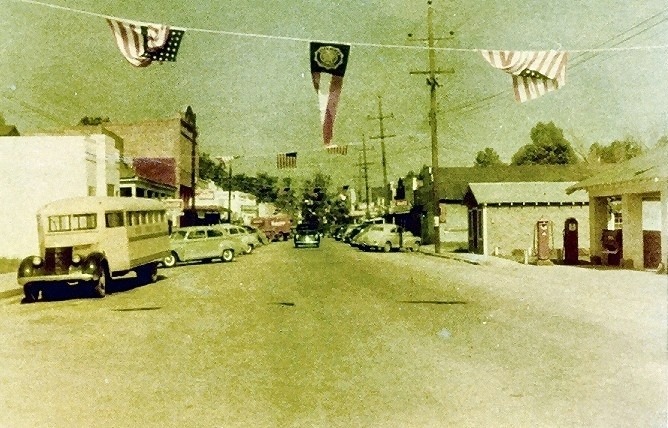
Downtown Newellton in the 1940s. 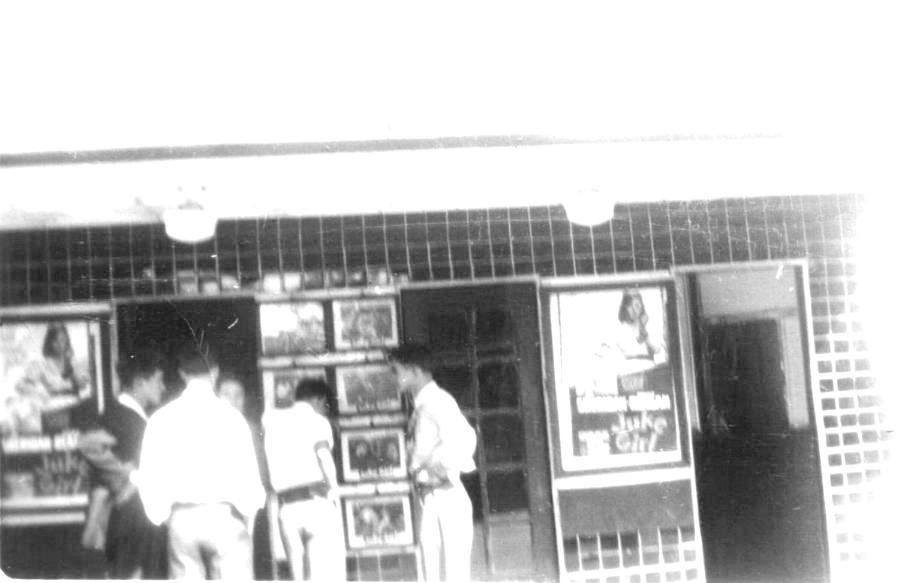
Hawkins Theater 1950s
Jim liked to play the fiddle and he and Etta Mae, along with Carl, Jim’s younger brother formed a small band, with Carl playing the banjo and Etta Mae the piano. The families would get together when the weather was nice and play on Saturday afternoon, inviting others living nearby to join in. Enough food was usually cooked on Saturday morning to last through Sunday, so that the women could have some relaxation time. While the women caught up on the neighborhood gossip, and the men talked mostly about hunting and politics, the kids played outside, inventing their own games and enjoying an escape from their chores.
Even though Jim and his boys hunted for a living, there were plenty of others who hunted for recreation, and despite its remote location, the Flowers Landing community bordered thousands of acres of wilderness, where premiere hunting was available. Important people from around the state and the country visited the Tensas woods. My daddy, Charles (Bubba), always referred to the important visitors as “The Hats”, and told about helping guide some of them on hunts in Tensas and Madison parish when he was a boy.
One important person that befriended Jim was Jimmie Davis, who later became governor of Louisiana. Jimmie Davis and Jim had much in common which is probably why they hit it off when they met. Jimmie Davis, born the son of a poor sharecropper in Jackson Parish, describes his childhood in an interview that appeared in The Louisiana Trooper, a publication of the Louisiana State Police, in 1990 when he was ninety-one years old. He tells about his large family, eleven kids, his parents and grandparents living in a two room cabin. Later, when his father bought his own farm, they all lived together in one room for a time. He is quoted as saying, “I was about 8 years old before I ever slept in a bed…...” Education was his escape from the poverty of his childhood, graduating from high school, then attending Louisiana College in Alexandria where he used his guitar and sang on the street corners for money. He later attended LSU and earned a Master’s Degree.
He taught at a women’s college in Shreveport, served as Public Commissioner of Police and Fire Departments in Caddo Parish, and later ran for Louisiana Public Service Commissioner and won. During this time in the 1930s, he also met and married Miss Alverna Adams, whose father was a physician and one of the old families of Shreveport. She was cultured and played classical music on the piano, later helping Jimmie write some of his music. In a 2000 New York Times article he joked, ”I try out a song on my wife, and if she doesn’t like it, I rush right out and record it.” (The New York Times, 2000)
While serving as Police Commissioner and Public Service Commissioner he was playing music and recording songs. He started playing on KWKH radio in Shreveport and was recruited by RCA to go to Nashville where he recorded songs like “Nobody’s Darling But Mine”and “It Makes No Difference Now” which did very well, along with “You Are My Sunshine”.(New York Times) He was not interested in being governor, but people all over the state kept asking him to run. His music career was doing well, and in his words, “I could make more money in a month singing, than I could make in two years and governor.”
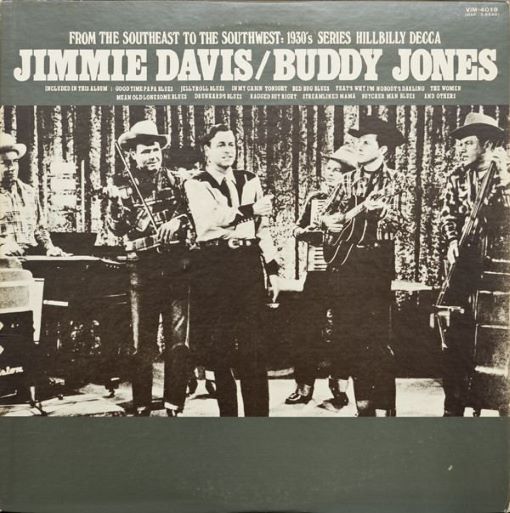
One of Jimmie’s early albums 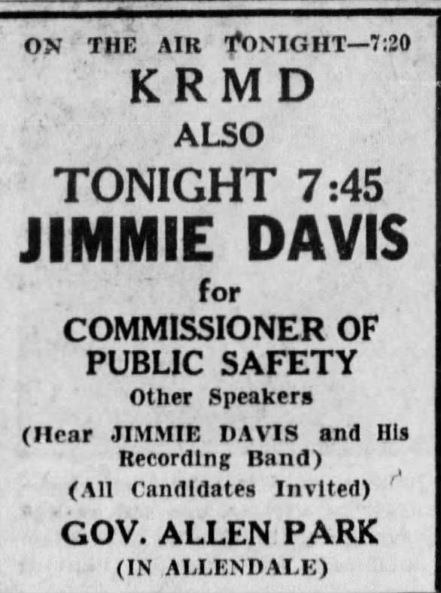
Jimmie Davis campaign ad 1938 in Shreveport Times

Jimmie Davis on his horse Sunshine at Louisiana Capitol 1960 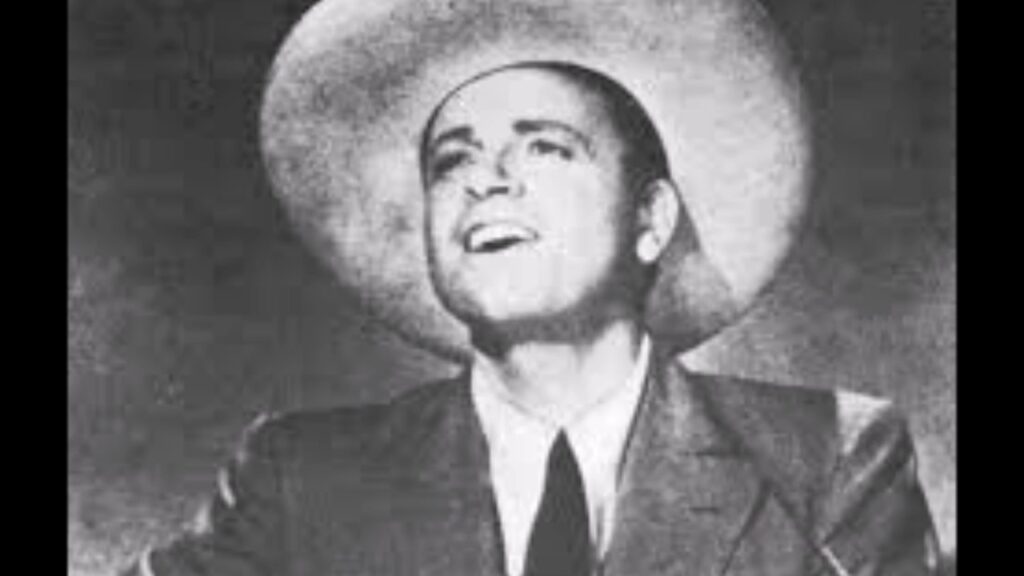
Click to hear “You Are My Sunshine” 
Click to hear “Nobody’s Darlin But Mine”
He loved people, and when his political friends talked him into running for governor, he campaigned with his band around the state, “We’d talk a little, then we’d sing a little and people would dance.” (The Louisiana Trooper) It was during this time when he was campaigning in Tensas Parish, that he met Jim and Etta Mae. They had a small store on the banks of the Tensas River near the landing and when he came by there one day to ask for their vote, they discovered how much they had in common as they talked.
Mr. and Mrs. Davis would visit Jim and Etta Mae at Flowers Landing and Glen recalls one visit when they had the Davises over for supper. It had rained several inches and the front yard of their old house was a giant puddle with black “gumbo” mud underneath. When Mr. and Mrs. Davis arrived, Mrs. Davis did not want to ruin her shoes, so she took them off and waded into the house barefooted. At other times, Glen was invited to come hang out with their teenage son, Jimmy Davis Jr. when they would be staying on Lake Bruin at a friend’s camp. He recalls conversations with Mr. Davis when he would drive him back home to Tensas, listening to the radio as they rode, and Jimmie telling him that he would never allow ads for cigarettes or beer on his radio programs. Another time Mrs. Davis took him and Jimmie Jr. to the state fair in Shreveport, and Glen claims that the Davises wanted to have him around as a good influence on Jimmie Jr. who was adopted and a little on the wild side. Their plan may not have worked, since Glen recalls that a few years later when he and Jimmie Jr. were no longer buddies, Jimmie Jr. engaged in antics such as speed boating on Lake Bruin with naked women in his boat!
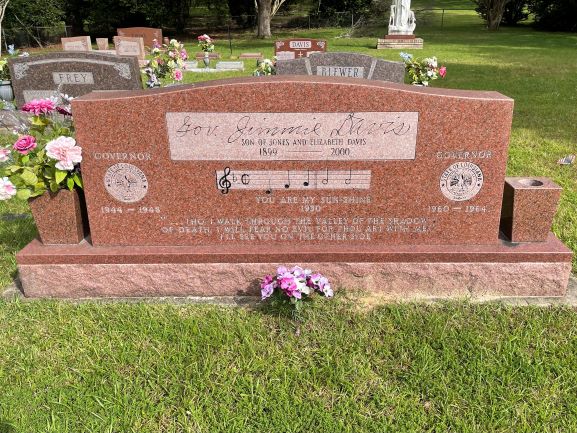
Jimmie Davis’ headstone near Chatham, Louisiana 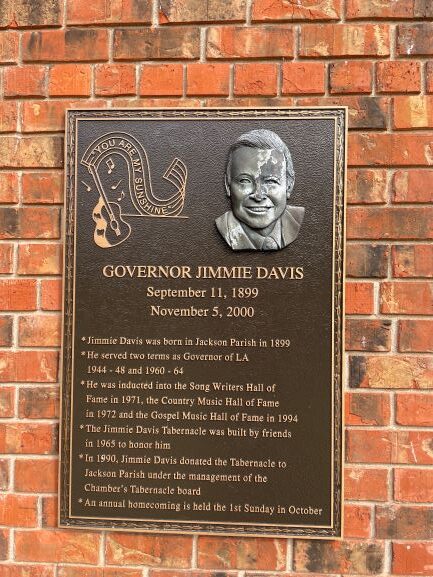
Plaque on the side of the Jimmie Davis Tabernacle 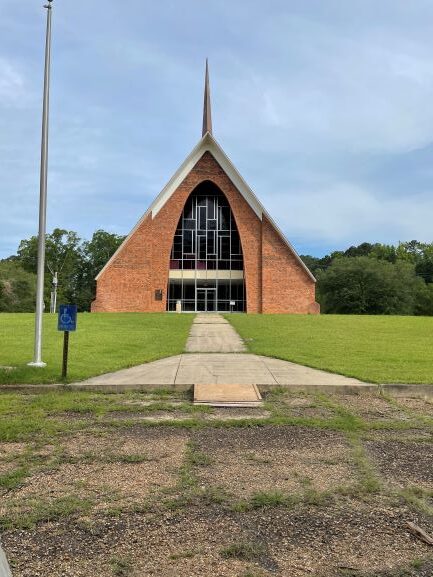
Jimmie Davis Tabernacle near Chatham, Louisiana 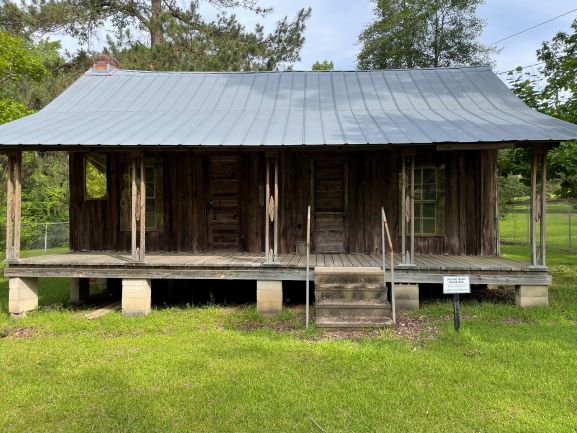
Jimmy Davis’ family home in Jackson Parish 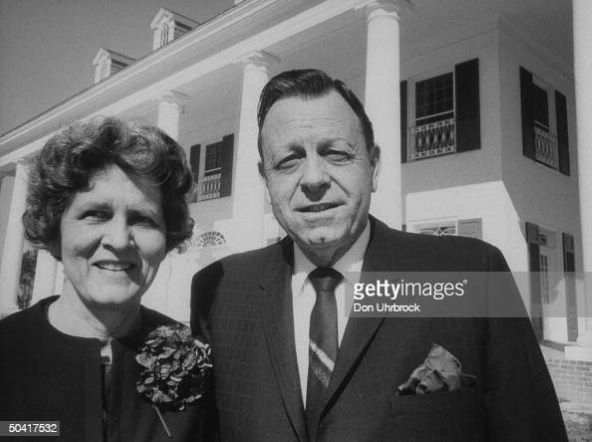
Gov. James H. Davis and his wife. (Photo by Donald Uhrbrock/Getty Images)
When he became governor, he did not forget his friends like Jim. One of the promises he made was to get electricity to his place, and when he was elected for his first term which was 1944-1948, electricity was provided for the first time at Flowers Landing. When power was installed in the house they had a single wire with a bulb in each room, and the lights were so bright compared to the oil lamps they were using, Jim told the children not to stare at the bulb for fear it would hurt their eyes. When Jimmie Davis was elected for the second time in 1960-1964, he promised Jim that the road to his house would be paved and completed during his term.
The paving of that road that ran past our house remains one of my most vivid childhood memories. There were two small oak trees growing close together near the road in our front yard. My brother and I hauled boards up the trees and built a platform between them that we called our fort. Along with our younger sisters, we spent many hours playing there after school and in the summer, sometimes using it as an escape from Mama’s switch when we were in trouble. When the crews began to prepare the road for paving, a man with a bulldozer came to cut down the trees, but saw our sad faces watching nearby and went away. Our victory was short lived, as he returned when we weren’t watching and finished the job. During the months that the road work was being done, we had to walk a quarter mile alongside the red dirt foundations of the new road to get to the place where the school bus could pick us up. Compared to the gravel road we had always known, I remember how black the asphalt seemed with the bright yellow lines down the middle when it was new. How much heat it reflected in the summer, and the steam rising after a sudden thunderstorm cooled it down, when we would delight in riding our bikes through the warm puddles.
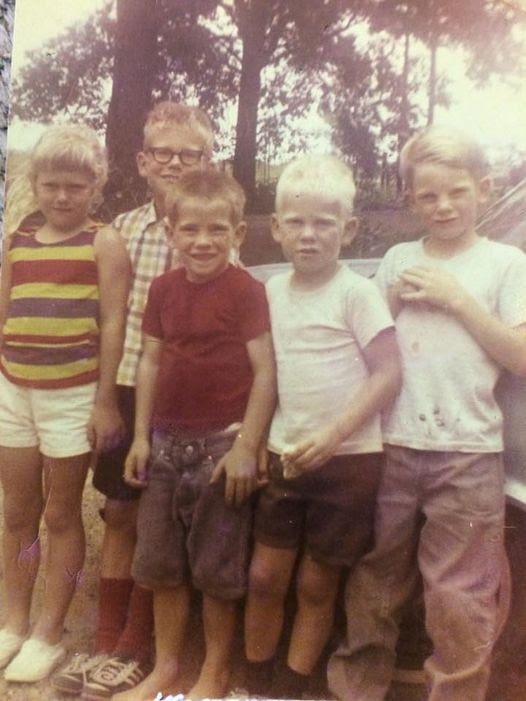
Jimmie Davis lived a remarkable life, holding important public offices, and writing and recording popular songs that sold millions of records, including “You Are My Sunshine” which was named one of the “Songs of the Century” and earned a Grammy Hall of Fame Award in 1999. (64 Parishes Magazine) He continued to hunt in Tensas and Madison Parish while he was governor and for years afterwards, visiting with Jim and the family when he was in the area. He lived to be 101 and performed four songs at his 100th birthday party in 1999, dying at his home in Baton Rouge on November 5, 2000.
Sing to him a new song; play skillfully on the strings, with loud shouts.
Psalm 33:3
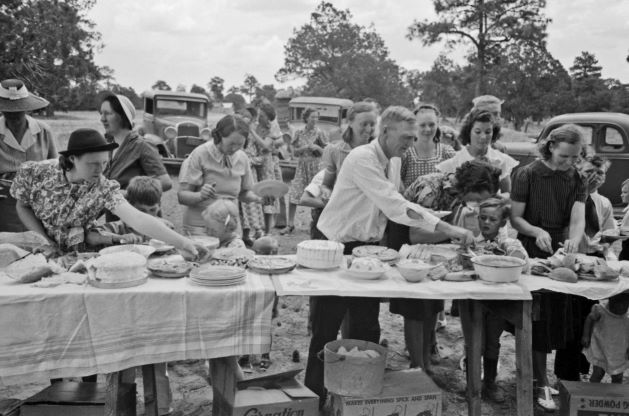
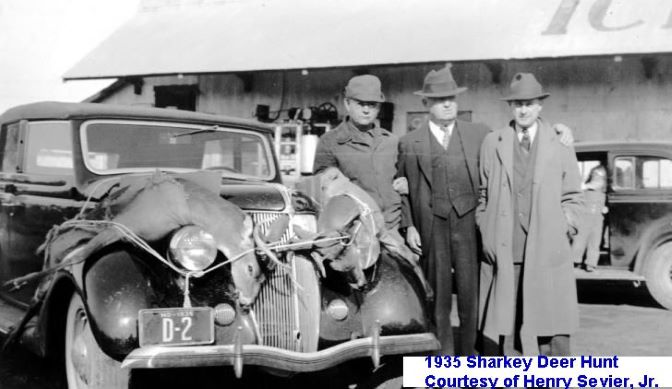
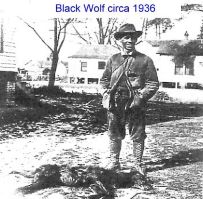
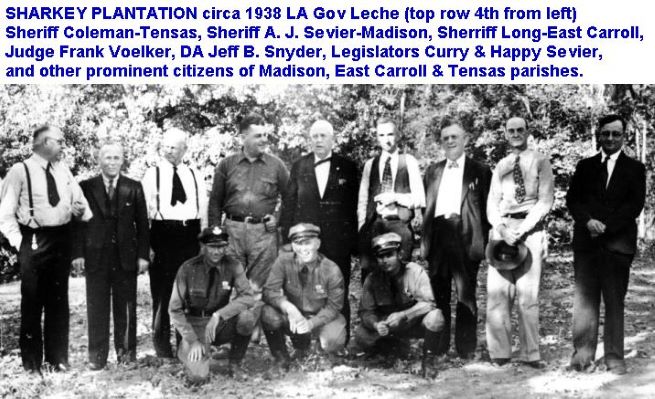
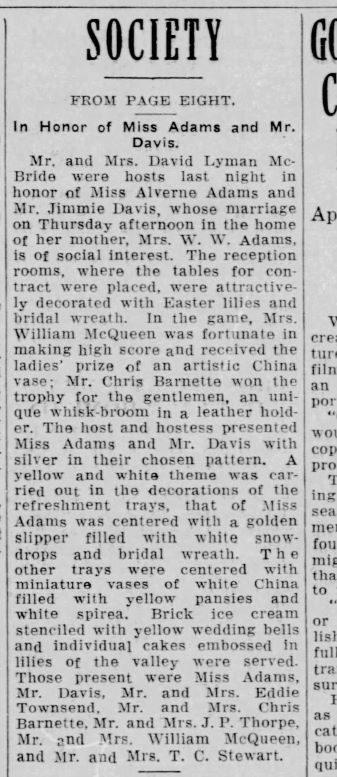
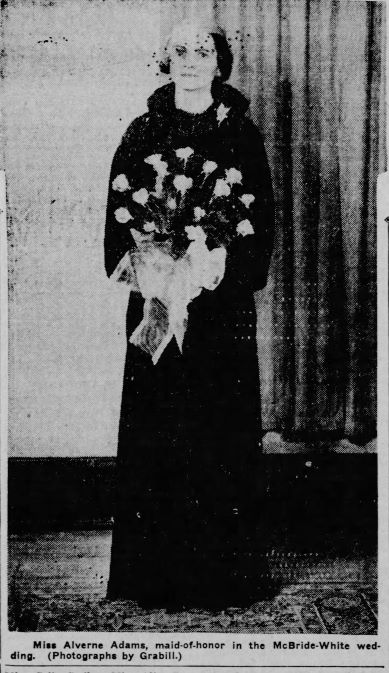
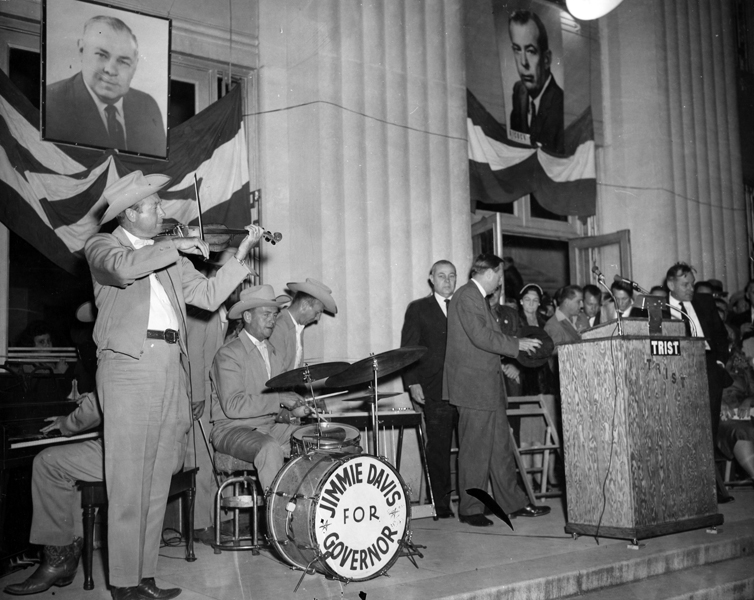
Totally interesting
Rosemary, Hello, its been a long time. saw the post on face book clicked to this site. After reading what was here, I have to get this book. I love how and what you have written.
Tell Steve hi from me. If you do not remember me, I meet you a few times, I’m sure Steve can tell you a few stories.
Of course, Robert, I remember you! Your family had the pharmacy in St. Joe. Steve says hi back and it was good to hear from you. Thanks for your positive comments.